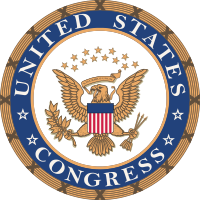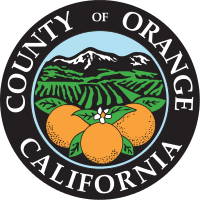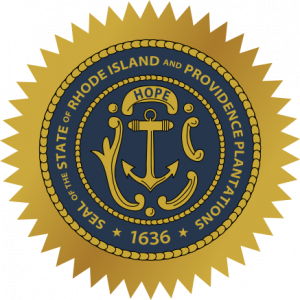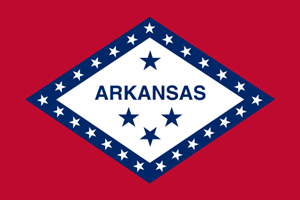February 10, 2014 •
Proposed Amendment in Michigan Would Create a Part-time Legislature
A statewide petition to amend the Michigan Constitution was approved by the Michigan Board of State Canvassers last week. The proposed amendment would institute a part-time state Legislature and limit legislative sessions to 60 days, lawmaker salaries to $35,000, and […]

A statewide petition to amend the Michigan Constitution was approved by the Michigan Board of State Canvassers last week. The proposed amendment would institute a part-time state Legislature and limit legislative sessions to 60 days, lawmaker salaries to $35,000, and total legislative staffers to 250.
The committee seeking the amendment must collect at least 322,609 signatures in order to get the amendment on the ballot in November.
February 10, 2014 •
Colorado Secretary of State Issues Campaign Finance Advisory Opinion
Deputy Secretary of State Suzanne Staiert issued an advisory opinion on February 6 addressing the formation of independent expenditure committees by political parties. Although an advisory opinion is not binding, its purpose is to provide clarification regarding the agency’s interpretation […]

Deputy Secretary of State Suzanne Staiert issued an advisory opinion on February 6 addressing the formation of independent expenditure committees by political parties. Although an advisory opinion is not binding, its purpose is to provide clarification regarding the agency’s interpretation of current campaign finance law.
Political parties may operate an independent expenditure committee and may raise funds in any amount from any permissible source. If a political party chooses to form an independent expenditure committee, it must avoid the appearance of corruption through the implementation of sufficient safeguards. Any expenditures coordinated with or controlled by a candidate are considered a contribution to the candidate committee and are, therefore, subject to contribution limits.
February 10, 2014 •
Hawaii State Ethics Commission Concerned About SB 2423
On February 7, the Senate Committee on Education reviewed testimony from the Hawaii State Ethics Commission regarding its concerns about SB 2423. Introduced in January, the bill authorizes the Department of Education to accept gifts or donations based on criteria […]

On February 7, the Senate Committee on Education reviewed testimony from the Hawaii State Ethics Commission regarding its concerns about SB 2423. Introduced in January, the bill authorizes the Department of Education to accept gifts or donations based on criteria established by the Board of Education. The commission maintains all state agencies and departments should be held to the same standards and codes of conduct; furthermore, it would be unnecessary and imprudent to allow the department to accept gifts contrary to the state ethics code.
SB 2423 also permits schools to participate in charitable fundraising activities in conjunction with 501(c)(3) tax-exempt organizations. Though perhaps well-intended, the bill is extremely broad and raises numerous concerns in terms of application and oversight.
During its testimony, the commission urged the committee to defer the bill until after the Commission has an opportunity to thoroughly consider the issues involved.
February 10, 2014 •
Vermont Campaign Finance Bill Contains Significant Drafting Error
A drafting error in the state’s new campaign finance law left Vermont temporarily without contribution limits. The new limits are set to take effect on January 1, 2015, but the bill repealed the entire existing law effective upon the governor’s […]

A drafting error in the state’s new campaign finance law left Vermont temporarily without contribution limits. The new limits are set to take effect on January 1, 2015, but the bill repealed the entire existing law effective upon the governor’s signature.
Although the repealed statutory limits had been invalidated by the U.S. Supreme Court in 2006, the law reverted to the limits prior to the unconstitutional amendment. The prior contribution limits will remain in effect until the new limits begin in 2015, according to a statement on the Elections Division website.
February 8, 2014 •
Georgia Governor Signs Bill to Change Assignment of Ethics Agency
Gov. Nathan Deal has signed into law a bill changing the assignment of the state’s ethics agency to the State Accounting Office from the Secretary of State for budgetary purposes. In addition to moving the Georgia Government Transparency and Campaign […]

Gov. Nathan Deal has signed into law a bill changing the assignment of the state’s ethics agency to the State Accounting Office from the Secretary of State for budgetary purposes.
In addition to moving the Georgia Government Transparency and Campaign Finance Commission, Senate Bill 297 modifies certain filing requirements for county and municipal candidates and candidate committees.
The bill became effective on January 31, 2014.
February 7, 2014 •
News You Can Use Digest – February 7, 2014
National: Small Super PACs Playing Outsize Role in Senate Races National Journal – Scott Bland and Alex Roarty | Published: 2/3/2014 Small, state-based outside groups that are allowed to raise and spend unlimited amounts of money have […]

National:
Small Super PACs Playing Outsize Role in Senate Races
National Journal – Scott Bland and Alex Roarty | Published: 2/3/2014
Small, state-based outside groups that are allowed to raise and spend unlimited amounts of money have proliferated in the early going of the 2014 midterm races and are threatening to have a bigger impact than those based in Washington, D.C., such as American Crossroads. These new groups are based in states where U.S. senators are battling for re-election, and dedicate themselves exclusively to that race.
Federal:
Campaign Websites in 2014 Aren’t Always What They Seem
Time Magazine – Denver Nicks | Published: 2/5/2014
A new Republican fundraising tactic reminiscent of telemarketing scams has some asking where the line is between clever campaigning and fraud. The GOP is raising money for congressional races by putting up websites that pretend to represent Democratic candidates and accept contributions that will go toward defeating the very same Democrats.
Law Doesn’t End Revolving Door on Capitol Hill
New York Times – Eric Lipton and Ben Protess | Published: 2/1/2014
Federal ethics rules are intended to limit lobbying by former senior officials within one year after they leave the government. Yet even after the ethics rules were revised in 2007 following a lobbying scandal, more than 1,650 congressional aides have registered to lobby within a year of leaving Capitol Hill, according to an analysis by The New York Times. At least half of those departing aides, the analysis shows, faced no restrictions at all.
From the States and Municipalities:
Alabama – Alabama Senate Disagrees to Agree? Partisan Fight Ends with Unanimous Vote for Tougher Ethics Bill
AL.com – Mike Cason | Published: 2/4/2014
The Alabama Senate passed legislation to tighten restrictions on former public officials who become lobbyists. Senate Bill 36 would prohibit state contractors from giving campaign contributions to state officials, and would expand the definition of lobbying, among other provisions. The bill now goes to the House.
Alabama – Resort’s Offer to Heroic Birmingham-Area Teachers Sparks Debate over Ethics
AL.com – Michelle Matthews | Published: 1/30/2014
David Clark, a condominium manager, wants to offer two-night condo stays to thank Birmingham-area teachers who stayed overnight with children who were stranded after a recent winter storm, but questions arose as to whether the giveaway would violate Alabama’s ethics law, which stipulates that teacher gifts must have a value of $25 or less, and that gifts may not exceed a total of $50 for a full calendar year.
California – Why Is It So Hard To Catch Illegal Campaign Contributions?
KPBS – Brad Racino | Published: 2/3/2014
Campaign fundraisers and strategists, as well as government employees and independent researchers, said the overwhelming number of donations that can pour into a campaign makes the process almost impossible to monitor. There is a lack of regulatory manpower needed to sift through myriad contributions to locate any abnormalities. So far, there have been more than 10,000 campaign contributions made during San Diego’s 2013 mayoral special election.
Florida – Convicted Sweetwater Mayor’s Lobbyist-Friend Gets 1-Year Sentence
Miami Herald – Jay Weaver | Published: 2/6/2014
Lobbyist Jorge Forte, a onetime chief of staff for former Sweetwater Mayor Manuel Maroño, was sentenced to one year in jail after pleading guilty to a fraud conspiracy and agreeing to cooperate with prosecutors. Maroño and Forte were arrested after an undercover FBI operation revealed they were pocketing thousands of dollars in kickbacks while seeking federal grants. Maroño, who did not cooperate in the investigation, was sentenced to 40 months in prison.
Hawaii – Critics Say Hawaii Political Money Hard to Trace
Columbus Republic; Associated Press – | Published: 1/30/2014
Lobbyists in Hawaii are supposed disclose how much money they spend to influence lawmakers, but critics say the state disclosure system is among the weakest in the nation and prevents a timely and complete tally. Sen. Les Ihara introduced legislation to close loopholes that allowed more than 90 percent of nearly 200 registered lobbyists to report zero expenses over three reporting periods last year.
Louisiana – Louisiana Politicians Spent Millions on Meals, Golf, Tickets, Other Perks, Review Shows
New Orleans Times Picayune – Manuel Torres | Published: 1/30/2014
Running for office in Louisiana spawns campaign accounts that numerous officials are using to pay for meals and drinks, golf rounds and club dues, gifts to unnamed recipients, and other perks, reported The New Orleans Times Picayune. Critics say without stricter rules, campaign funds are being used as private expense accounts, turning contributions into little more than gifts to candidates.
Missouri – Dooley Suggested County Workers Donate 1% of Their Pay to Campaign, His Office Confirms
St. Louis Post-Dispatch – Kevin McDermott | Published: 2/4/2014
At an after-work meeting, St. Louis County Executive Charlie Dooley told some 50 county workers, all political appointees, that donating one percent of their salaries to his re-election campaign is traditionally what people in those jobs do in election years. KMOX reported that sources indicated no effort was made to tell employees that donating to the re-election effort was voluntary. The sources described the effect of the speech as “intimidating” with the audience caught in moments of awkward silence.
Nevada – An Awkward Position for Nevada’s Ethics Commission Director
Reno Gazette Journal – Anjeanette Damon | Published: 2/1/2014
Nevada Ethics Commission Executive Director Caren Cafferata-Jenkins is running a for Washoe Family Court judge. From the outside, it looks like an awkward position to be in; one of the state’s few public ethics watchdogs is jumping into the political game herself. Cafferata-Jenkins said she cannot afford to give up her job to run for office. “How can we expect good candidates to be unemployed for 10 months in order to have a chance at public office?” said Cafferata-Jenkins.
Oregon – Trader Joe’s Developer Hosts Event at El Gaucho; PDC Executive Director Attends
Portland Oregonian – Brad Schmidt | Published: 2/3/2014
Before Portland’s urban renewal agency approved a deal to develop a Trader Joe’s in the city, Development Commission Executive Director Patrick Quinton attended an event sponsored by a company the city later engaged to purchase the property for the store. Quinton did not disclose the food or drink he consumed. Portland’s lobbying regulations for top executives and elected officials require the disclosure of food, gifts, or entertainment worth more than $25 by someone lobbying the city.
Vermont – Drafting Error Opens Campaign Finance Law Up to Amendment
Bennington Banner – Anne Galloway (VTDigger.com) | Published: 2/6/2014
Vermont Gov. Peter Shumlin signed a campaign finance reform bill into law on January 23. But there was a drafting error – the effective dates were incorrect – and the House Government Operations must address the problem with a technical corrections bill that will be up for action in the coming days. Rep. Cynthia Browning wants to use this opportunity to propose an amendment that would reinstate lower donation and contribution limits in line with the original bills passed by the House and Senate.
Virginia – At Executive Mansion, McAuliffe Puts Out the Welcome Mat
Washington Post – Laura Vozzella | Published: 2/5/2014
In need of Republican friends to get his agenda through a divided Virginia General Assembly, Gov. Terry McAuliffe has restocked the executive mansion bar and thrown open the doors for nightly receptions. McAuliffe’s open invitation is part of a broader effort to win over Republicans who knew the former Democratic National Committee chairperson only through attack ads and media accounts.
 State and Federal Communications produces a weekly summary of national news, offering more than 80 articles per week focused on ethics, lobbying, and campaign finance.
State and Federal Communications produces a weekly summary of national news, offering more than 80 articles per week focused on ethics, lobbying, and campaign finance.
News You Can Use is a news service provided at no charge only to clients of our online Executive Source Guides, or ALERTS™ consulting clients.
February 7, 2014 •
FEC Updates Lobbyist Bundling Disclosure Threshold
On February 6, the Federal Election Commission (FEC) published its Price Index Adjustments for Expenditure Limitations and Lobbyist Bundling Disclosure Threshold in the Federal Register. The lobbyist bundling disclosure threshold has increased to $17,300 for 2014 from $17,100 in 2013. […]

On February 6, the Federal Election Commission (FEC) published its Price Index Adjustments for Expenditure Limitations and Lobbyist Bundling Disclosure Threshold in the Federal Register. The lobbyist bundling disclosure threshold has increased to $17,300 for 2014 from $17,100 in 2013. This threshold amount is adjusted annually.
Federal law requires authorized committees of federal candidates, leadership PACs, and political party committees to disclose contributions bundled by lobbyists and lobbyists’ PACs.
February 6, 2014 •
New Mexico Bill Would Increase Revolving Door Restrictions
A state bill regarding revolving door restrictions passed the House Business and Industry Committee and is now in the House Judiciary Committee for hearings. House Bill 82 prohibits former statewide elected officials, public regulation commissioners, legislators, and cabinet secretaries from […]
 A state bill regarding revolving door restrictions passed the House Business and Industry Committee and is now in the House Judiciary Committee for hearings.
A state bill regarding revolving door restrictions passed the House Business and Industry Committee and is now in the House Judiciary Committee for hearings.
House Bill 82 prohibits former statewide elected officials, public regulation commissioners, legislators, and cabinet secretaries from accepting compensation as lobbyists for a period of two years after leaving public service.
The bill also prohibits employers of lobbyists from hiring the former public officials before the end of the two-year period.
February 6, 2014 •
U.S. House Bill Introduced for Voluntary Publicly Financed Elections
A new bill introduced in the U.S. House of Representatives would create voluntary publicly financed House elections in order to “encourage members of Congress to rely on small donor fundraising and still remain competitive in marquee races,” according a press […]

A new bill introduced in the U.S. House of Representatives would create voluntary publicly financed House elections in order to “encourage members of Congress to rely on small donor fundraising and still remain competitive in marquee races,” according a press release by Rep. John Sarbanes.
On Wednesday, February 5, Sarbanes and Rep. Nancy Pelosi introduced the Government by the People Act. With the inclusion of Rep. Walter Jones, the one Republican among the other 128 cosponsors, the bill is technically bipartisan. Matching public funds would be provided to House candidates in varying amounts depending on the size and timing of the original contributions. The bill would also create a refundable $25 tax credit, called the My Voice Tax Credit, for individuals to use for contributions.
The bill does not affect Senate elections.
February 5, 2014 •
Canada Fair Elections Act Introduced
The Harper government introduced the Fair Elections Act to amend the Canada Elections Act on Tuesday, February 4. Bill C-23 will increase contribution limits to political parties from $1,200 to $1,500, increase penalties to $100,000 for intentional violations by corporations, […]

The Harper government introduced the Fair Elections Act to amend the Canada Elections Act on Tuesday, February 4.
Bill C-23 will increase contribution limits to political parties from $1,200 to $1,500, increase penalties to $100,000 for intentional violations by corporations, and will shift decision-making powers regarding investigations from the Chief Electoral Officer to an independent panel.
February 5, 2014 •
Orange County, California Board Pursuing FPPC Enforcement
The Board of Supervisors voted Tuesday, February 4, to pursue outsourcing the enforcement of political ethics to the state’s Fair Political Practices Commission (FPPC). Officials will ask the state Legislature to authorize the FPPC to enforce county ethics ordinances. The […]

The Board of Supervisors voted Tuesday, February 4, to pursue outsourcing the enforcement of political ethics to the state’s Fair Political Practices Commission (FPPC). Officials will ask the state Legislature to authorize the FPPC to enforce county ethics ordinances.
The unanimous vote was in response to a 2013 grand jury report titled, “A Call for Ethical Standards: Corruption in Orange County.”
Supporters of the approach cite San Bernardino County, which recently contracted with the FPPC to audit county campaigns and to prosecute ethics violations. The grand jury’s proposal would also give an independent authority the power to recommend ordinance changes concerning conflicts of interest, gifts, contract procurement, campaign finance, and lobbying.
February 5, 2014 •
MA Legislature Closed Today Due to Weather
Due to severe winter weather the Massachusetts House of Representatives and Senate will be closed on Wednesday, February 5. Both the House and Senate will resume normal business hours on Thursday, February 6, 2014.
 Due to severe winter weather the Massachusetts House of Representatives and Senate will be closed on Wednesday, February 5. Both the House and Senate will resume normal business hours on Thursday, February 6, 2014.
Due to severe winter weather the Massachusetts House of Representatives and Senate will be closed on Wednesday, February 5. Both the House and Senate will resume normal business hours on Thursday, February 6, 2014.
February 5, 2014 •
Rhode Island Legislature Closed Today Because of Winter Weather
The Rhode Island House of Representatives and Senate have cancelled scheduled floor sessions and committee hearings for Wednesday, February 5, due to the winter snowstorm. A scheduled 3 p.m. news conference concerning legislation dealing with the Department of Health certificate […]

The Rhode Island House of Representatives and Senate have cancelled scheduled floor sessions and committee hearings for Wednesday, February 5, due to the winter snowstorm. A scheduled 3 p.m. news conference concerning legislation dealing with the Department of Health certificate of need process has been postponed to 3 p.m. Thursday, February 6.
February 4, 2014 •
Arkansas Lieutenant Governor Officially Resigns
Lt. Gov. Mark Darr has made his resignation official three weeks after saying he would step down over ethics violations concerning his campaign and office spending. Legislative leaders are pushing to change state election law in order to keep Darr’s […]

Lt. Gov. Mark Darr has made his resignation official three weeks after saying he would step down over ethics violations concerning his campaign and office spending.
Legislative leaders are pushing to change state election law in order to keep Darr’s office vacant for the rest of the year rather than hold a special election.
Currently, state law requires the governor to call a special election within 150 days of declaring Darr’s office vacant, but lawmakers from both parties would prefer to keep the office unfilled since the general election will be held November 4, 2014.
State and Federal Communications, Inc. provides research and consulting services for government relations professionals on lobbying laws, procurement lobbying laws, political contribution laws in the United States and Canada. Learn more by visiting stateandfed.com.

